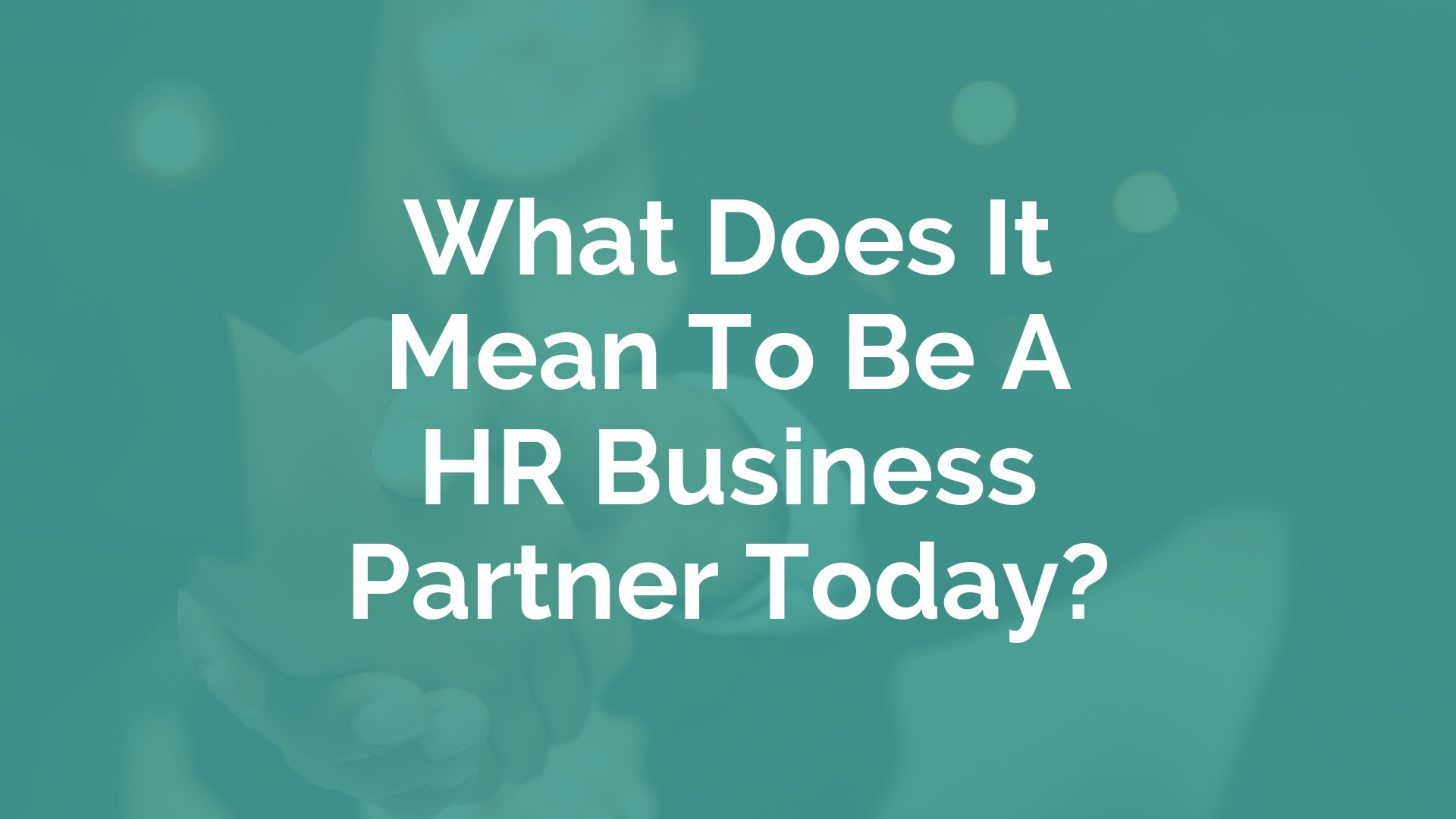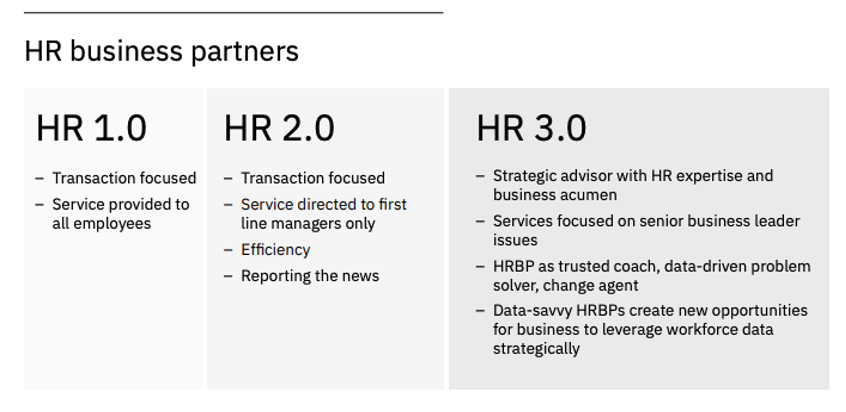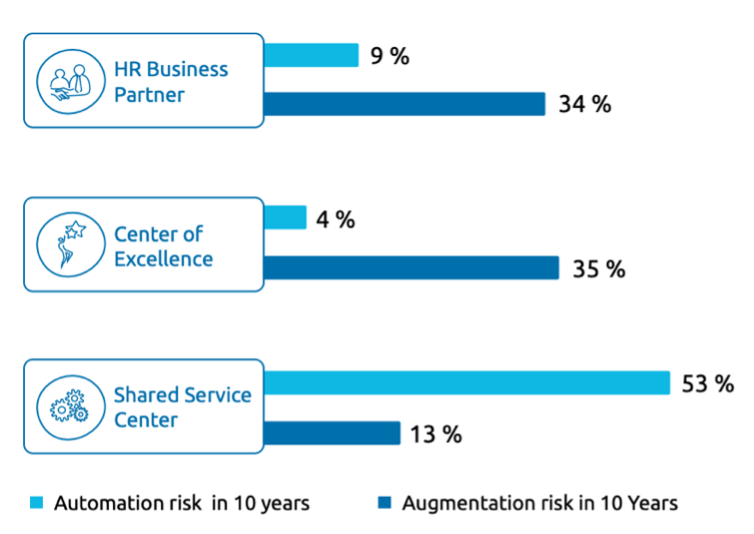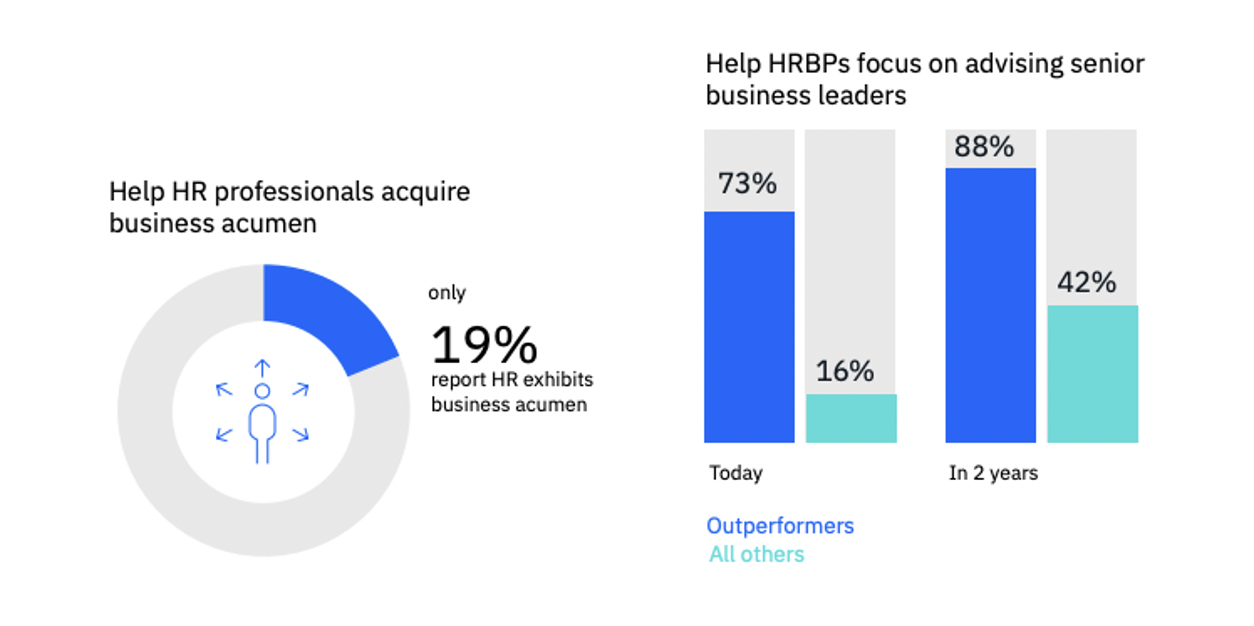What Does It Mean To Be A HR Business Partner Today?
What does it mean to be an HR Business Partner (HRBP)? The most impactful element of the HRBP role is being a strategic partner to the business, helping to translate organisational strategy into HR strategy. When organisations enable HR Business Partners to embrace this role, they see clear business benefits, according to research by Gartner: Organisations that build high-performing HRBPs improve employee performance by up to 22%, employee retention by up to 24%, revenue by up to 7%, and profit by up to 9%.
As highlighted by Diane Gherson, former CHRO at IBM, new work models, business requirements, and new employee expectations require a new HR approach. A new approach, which, as David Green, Managing Partner at Insight222, explains, is about becoming real strategic partners for today and the future.
In this blog, we’re going to look at what it means to be an HRBP today, and the HRBP role for 2022 and beyond. We’ll answer the following questions:
What is an HR Business Partner?
How is the HRBP role changing?
What is the purpose of an HR Business Partner today?
What skills do HRBPs need to develop for the future of work?
What is an HR Business Partner?
According to CIPD, "HR business partners (HRBPs) work closely with business leaders and line managers to diagnose people priorities, create people plans, and help implement organisation-wide people approaches. They have an excellent knowledge of the business, a good understanding of all the areas in the people profession, and often act as the point of people expertise for a specific business area."
Essentially, HR Business Partners today are HR professionals who work closely with an organisation's senior leaders in order to develop an HR strategy that closely supports the overall aims of the organisation.
Traditional definitions of HR Business Partners are often focused on transactional elements of the role, for example providing solutions to employee challenges and responding to acute people-related emergencies. Since the concept of HRBP was developed in the 1990s, the emphasis on the HRBP role has become increasingly strategic – not just tactical. HR Business Partners are expected to be a strategic advisor to the business, solving senior business leader issues and all through a data-driven lens leveraging workforce data and people analytics.
As the term "business partnering" suggests, HRBPs work closely with an organisation's senior leaders to develop an HR strategy that closely supports the overall aims of the organisation. Through this collaboration, HRBPs bridge business leaders and the wider HR function, providing expert advice and guidance on people-related matters.
How has the HR Business Partner role evolved?
One of the key barriers to HRBPs taking on a more strategic role is time. Research from Gartner shows that during an average week, HRBPs spend almost 19 hours handling employee issues and over 16 hours on daily operations. This leaves only nine hours for strategic activities.
To break free of these administrative tasks, automation and augmentation will play a significant role over the next ten years.
Research from Capgemini and Faethm shows that 34% of the HRBP role will be augmented, while nearly 10% of the role will be automated away, over the next ten years. This will free up time for HRBPs to embrace their true purpose: delivering value to the business.
despite the evolving nature of work and the requirements of the future of work, many HRBPs still struggle to fully embrace their role as strategic partners - because they simply do not have the time.
However, with generative AI automating some of the tasks that consume most of their time, such as data entry and administrative tasks, 2024 could be the year that HRBPs can truly step up and become the strategic partners they were designed to be.
What is the purpose of an HR Business Partner today?
In our myHRfuture Academy online training course Becoming a Data Driven HR Business Partner Dave Ulrich, discusses how the expectations for a HR Business Partner have shifted since the origin of the HR Business Partner over 20 years ago. Explaining that HR is not about HR, it’s about creating value for the key stakeholders they serve, and how the job of the HR Business Partner is not about doing the work of HR, such as building purpose and belonging, but is about doing work that helps the company win in the marketplace.
“The purpose of being a business partner is to create value for the employee and for the organisation.”
As Dave Ulrich explains throughout the course:
"What's the most important or best thing HR or a business leader can give an employee? ...A sense of purpose, a sense of meaning, a sense of belonging, teamwork, money, opportunity, vision, community. And the list goes on and I say wow those are great things that HR can give an employee and they're incomplete."
While creating purpose, opportunity, and vision are incredibly important to driving engagement with employees, what HR and business leaders can and should give an employee today is an organisation that wins in the marketplace. If the company doesn't succeed in the marketplace, there is no purpose, there is no vision, and there is no teamwork. There is no incentive, there is no opportunity and being a business partner is about that assumption.
We know that being a business partner is not about HR but the value we create for customers, investors and employees for today's world, not yesterday's. However, to do that as an HR business partner, you must understand the context of your business and the challenges your organisation experiences. That's where HR Business partners create value and purpose, and that's what being a business partner is all about.
In this short bitesized learning video, taken from the course, Dave Ulrich helps us understand what it means to be a HR Business Partner in today’s world.
What skills do HRBPs need to develop for the future of work?
At myHRfuture, our research has led us to conclude there are nine key skills for the HR Business Partner to succeed in the future of work.
Of course, business acumen is a crucial factor in the success of an HRBP. However, with Insight222's research "Upskilling the HR Profession: Building Data Literacy at Scale" finding that 88% of CHROs prioritise people analytics as an essential part of their people strategy, upskilling HRBPs in data literacy skills is essential if they are to provide evidence-based solutions to pressing business challenges.
When it comes to being business focused today, organisations report that only 19% of HR professionals exhibit business acumen. What’s more, only 16% of HRBPs are focused on advising senior business leaders:
Are HRBPs business focused today?
Nine Key Skills for the HR Business Partner
When we spoke to Brigette McInnis-Day, Head of HR at Google Cloud, about what Google looks for in an HRBP and being business-focused and data-driven were two key traits. .
To be business-focused, "the operational aspect and acumen is key...operating with the business by showing information, understanding the business strategy, linking it and helping the leaders transform."
To be data-driven, "moving away from gut-feel and having tons of analytics...and trying to coach from an arm's length, really get in there and be part of the team that is actually driving the expansion, driving the business change and leveraging a culture at work that has metrics and data behind it to be able to pulse and focus on the issues at hand, not the things that might have brought us here in the past."
In 2021, Insight222's research found that only 43% of organisations believe their HRBPs are developing data literacy skills, despite over 80% of CHROs expecting them to do so. However, as of 2023, this number has improved, with 79% of HR leadership using data in their day-to-day lives.
Though, despite this clear improvement, we still have a long way to go in creating a data driven HR culture, which is why it is vital to upskill HRBPs in data literacy skills to meet the expectations and strategic goals of the Chief HR Officer. As such, five skills have been identified that HRBPs need to develop to build the data-driven capability of HR:
How to Upskill the HRBP
The value of people analytics in HR is increasing year on year, and the importance of upskilling HRBPs in data literacy is no longer a nice to have - it has become a necessity if they are to provide evidence-based insights that the C-suite expects and become the strategic business partners needed for the future of work.
But in order to upskill HR business partners effectively, there needs to be a multitude of instructor-led in-person and virtual workshops and digital learning modules through an online training platform. This combination of learning methods allows for a personalised and blended approach to upskilling, ensuring that HRBPs are equipped with the necessary skills to succeed as strategic partners.
What is the most important thing HR can give an Employee today?
As Dave Ulrich explains throughout the course, this is a question he often puts to business and HR leaders that he works with.
“What's the most important or best thing HR or a business leader can give an employee? And we list the answers and they're terrific. A sense of purpose, a sense of meaning, a sense of belonging, teamwork, money, opportunity, vision, community. And the list goes on and I say wow those are great things that HR can give an employee and they're incomplete.”
While creating purpose, opportunity and vision are incredibly important to driving engagement with employees, what HR and business leaders can and should give an employee today is an organisation that wins in the marketplace. If the company doesn't win in the marketplace there is no purpose, there is no vision there is no teamwork. There is no incentive, there is no opportunity and being a business partner is about that assumption.
Are you interested in learning more about being a HR Business Partner? Take a look at our online HR training
We know that being a business partner is not about HR, it's about the value we create for customers, investors and employees for today’s world not yesterdays. In order to do that as a business partner you must understand the context of your business and the challenges your organisation experiences. That's where HR Business partners create value and purpose and that's what being a business partner is all about.
In our online course “Becoming a Data Driven HRBP” Dave Ulrich outlines 13 trends that HR business partners need to drive impact and value in today’s world. Some of these trends include understanding the business context, building a data-driven mindset, and using analytics to drive decision-making.
Being a successful HRBP in today's world requires both strong business acumen and data literacy skills. By upskilling HRBPs in these areas, organisations can unlock their full potential and truly leverage their role as strategic partners for the business. With this approach, HRBPs can confidently navigate future challenges and fulfil their role as strategic partners in the ever-changing world of work.
Upskill your HRBP’s today!
We help organisations reinvent learning. Our learning programs support your HR Business Partners to build the skills they need to effectively use analytics in HR to have data driven conversations with the business that drive actionable outcomes. The Data Driven HR Fundamentals certification is a collection of 6 on-demand, video based training courses that can be completed within a 12 month period, at their own pace. This certification program is designed to support your team build their skills in analytical thinking, data analytics and storytelling. By completing this learning program your HR team will learn how to better interpret HR data and be confident in having data driven conversations with the business, that drive actionable outcomes.








